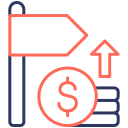Practical Budgeting Advice for Novice Investors
Chosen theme: Practical Budgeting Advice for Novice Investors. Start building wealth by mastering everyday money decisions that free cash for investing, protect you from surprises, and keep momentum strong. Subscribe for weekly, beginner-friendly prompts that help you stick with your plan.

Lay the Groundwork: A Budget Built for Investing
Set an automatic transfer on payday to route a fixed percentage into your brokerage or retirement account before you spend a dollar. Treat contributions as non-negotiable bills, and watch consistency defeat hesitation month after month.
Emergency Funds Without Losing Investing Momentum
Aim for one month of essential expenses as a starter buffer, then grow toward three to six. Parking early cash in high-yield savings keeps it liquid and discourages risky withdrawals that interrupt your budding investor habits.
Emergency Funds Without Losing Investing Momentum
Round up transactions, skim windfalls, and automate daily micro-transfers. Small, repeatable actions build resilience fast without sacrificing your beginner investing rhythm or undermining motivation during lean weeks when willpower feels stretched thin.
Emergency Funds Without Losing Investing Momentum
Increase your investment percentage after each milestone: first $500, then $1,000, then one-month expenses saved. Habit stacking respects psychology and keeps momentum sustainable as your confidence grows and your emergency fund quietly strengthens.
Cut Costs the Smart Way (So You Can Invest More)
Audit Subscriptions and Recurring Drips
Export last three months of statements, sort by merchant, and flag duplicates or forgotten trials. Cancel ruthlessly, renegotiate utilities, and redirect those dollars into low-cost index funds every single month for disciplined compounding.
Swap, Don’t Stop: Frugal by Design
Replace high-cost habits with lower-cost equivalents that deliver similar joy: home coffee gear, library ebooks, meal planning. Purposeful swaps sustain morale and free reliable cash for scheduled investments without feeling deprived or socially isolated.
Negotiate Like It’s Part of Your Job
Call providers annually, use competitor quotes, and ask for retention offers. A 10-minute call that saves $20 monthly becomes $240 yearly—money that compounds for decades when invested consistently in diversified, low-fee funds.
Align Your Budget with Real Investing Goals
Match goals to timelines: short-term stays in cash; five-plus years leans toward diversified index funds. Avoid raiding investments for near-term needs by pre-funding them inside your budget categories with deliberate monthly deposits.
Align Your Budget with Real Investing Goals
Schedule contributions on the same day each month to reduce timing anxiety. Consistency beats perfection, and automation shields you from emotional market swings and common beginner hesitations when headlines turn dramatic.



Spreadsheets with Guardrails
Use a simple template with locked formulas, color-coded categories, and rolling twelve-month views. Visibility builds trust, and trust makes it easier to increase your monthly investing line item deliberately without second guessing.
The Cashless Envelope Method
Set digital envelopes for groceries, transit, dining, and investing contributions. When a category nears zero, pause, reassess, and adjust. Scarcity cues help prevent overspending before it derails your carefully designed plan.
Weekly Money Check-Ins
Schedule a 15-minute Friday review with yourself or a partner. Celebrate small wins, correct drift early, and share your update in the comments to keep accountability strong and momentum visible for everyone.
Mindset and Behavior: Win the Quiet Decisions

Place your investing app on the home screen, hide shopping apps, and pre-commit through automation. Environment design beats willpower, especially during busy weeks when decision fatigue drains energy and focus.
Taxes, Fees, and Hidden Friction You Can Budget Around
Expense ratios matter. A fund costing 0.05% leaves more compounding power than one at 1.00%. Budget awareness means checking fees before buying, not discovering them years later when growth disappoints.

Taxes, Fees, and Hidden Friction You Can Budget Around
If eligible, prioritize workplace matches, IRAs, or similar accounts. Align paycheck deductions with your budget so contributions feel seamless rather than painful, reinforcing your identity and habits as an investor.
